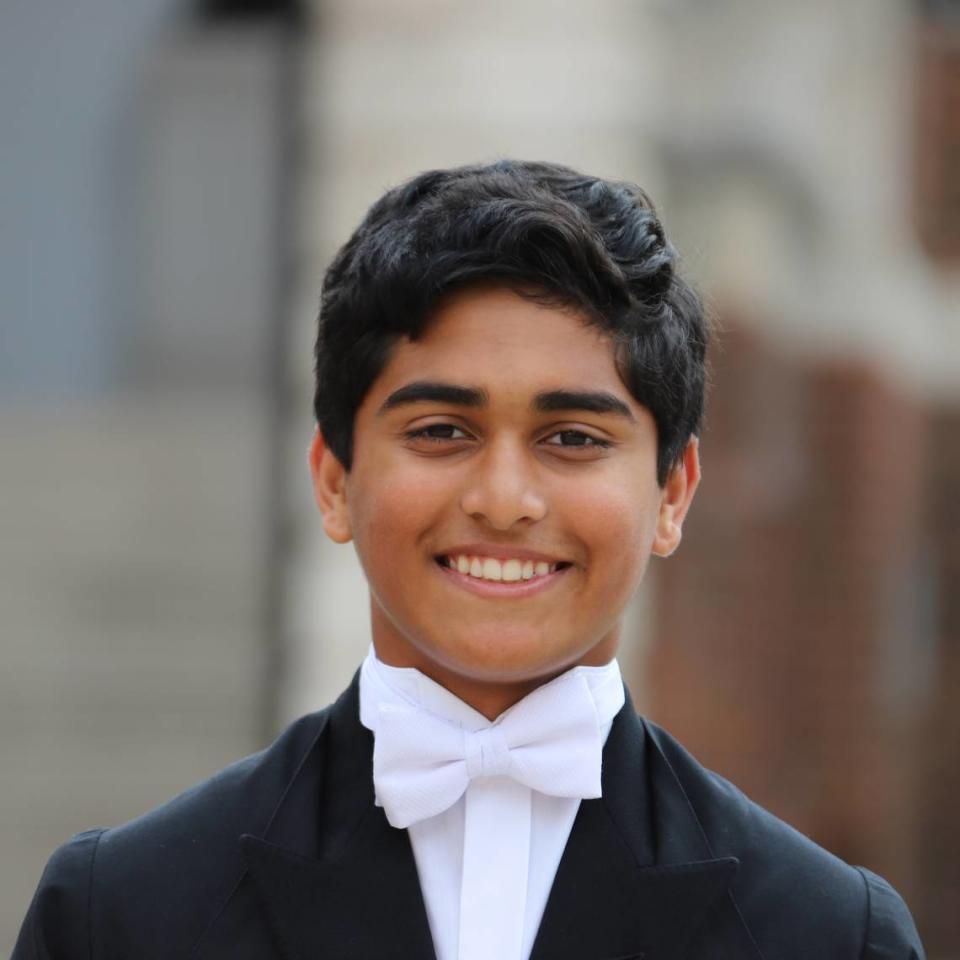How a Kentucky boy became part of 700 years worth of British royal tradition | Opinion
Saturday, May 6, 2023 was a day which will stay in my mind for the rest of my life. The glamour of Westminster Abbey, the solemnity of the royal processions, and the concluding cries of “God Save the King!” will resonate within my memory for years to come. The event was the Coronation of King Charles III ... and I, a kid who grew up in Kentucky, was fortunate enough to be present at the spectacle and have a front row seat.
My name is Moahnishan Wignakumar. I am 14 years old and I was born in Corbin but moved to Lexington when I was 1. I have two older brothers who are 22 and 23-years-old. My whole family lived in Lexington until I was 10 years old. In 2020, my oldest brother was accepted into Oxford University and so, my mom, my oldest brother, and I moved to London, England while my middle brother and dad stayed in Kentucky — my middle brother was starting college locally and my dad was working as a general surgeon nearby. In London, I entered Westminster Under School in 7th Grade and joined Westminster School for 9th Grade this year.
Our school, situated in the heart of Central London, was founded by Queen Elizabeth I in 1560 and is directly connected to Westminster Abbey and the Queen. I am a member of the King’s Scholars of Westminster School. I became a King’s Scholar in my transition from Westminster Under School (WUS) to Westminster School by taking part in a scholarship exam called The Challenge. I was one of eight boys who were selected by the school to be King’s Scholars. At the time, the late Queen Elizabeth II was still alive, so we were referred to as Queen’s Scholars. However, after her passing, our name was formally changed to King’s Scholars. We are also the spiritual descendants of the Benedictine Monks in Westminster Abbey. This further increases our close bond to the Abbey. Over the centuries, King’s Scholars have had certain privileges. One of these honors is the right to attend and play a role in every coronation. This meant that we were one of the fortunate few who would be present at the grand event.

It was confirmed that we would be attending the coronation at the end of February. Our role in the proceedings was to be the first to proclaim the King and Queen as they entered the Abbey. To do this, we sang the “Vivats”. This is a shortened version of “Vivat Rex, Carolus! Vivat Regina, Camilla!” – Latin for “Long Live King Charles! Long Live Queen Camilla!” We would practice singing the Vivats once every week until the actual event. As May 6 got closer and closer, security levels increased and increased until an airport-level security force was present. On the day before the coronation, the scholars stayed at school whilst everybody else left due to the security presence. Finally, the day itself came upon us.
It began at 8 a.m. with us waking up and wolfing down our breakfast. From 8:30 to 9:30, we began wearing our formal Abbey clothes: a white shirt, a waistcoat, a black tailcoat, striped trousers, a white bow tie, and a white robe. After we had worn our uniform, we processed into the Abbey. From 10:00 to 10:45, foreign world leaders, members of the royal family, and past and present prime ministers entered the Abbey. We had an astounding view of most of these figures.
Finally, at 10:53, the King arrived at the Great West Door in a sparkly, gold-covered, horse-drawn wagon. For a few minutes, he remained in the carriage, but at 11:00 am, the king and queen entered the Abbey. They processed slowly down the Abbey until they reached the altar. While they processed, the Westminster Abbey Choir was singing “I was Glad” by Hubert Parry and at the end of their procession, the Kings Scholars sang the Vivats. Thus, we were the first people to formally proclaim the king! Afterwards, the service continued until 12 p.m., the point in time when the king was crowned.
At 12:01, the Archbishop of Canterbury placed St. Edward’s crown upon King Charles’ head and the congregation shouted “God Save the King!” It was at this moment that the true magnitude of my position dawned upon me. The sight of St. Edward’s crown and the vigor of the congregation emphasized the honor of being present at such a magnificent ceremony. There is no doubt that this awe-inspiring occasion will be entrenched within my mind for decades to come. To be the first Kentuckian King’s Scholar to be present at the coronation of a British monarch is a prestige which will remain as a fundamental part of my identity for years to come.

Moahnishan Wignakumar is a native Kentuckian who now lives in London, England as a Westminster School King’s Scholar.

